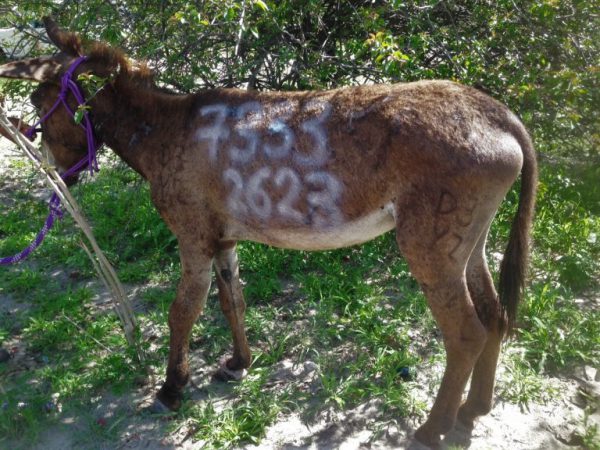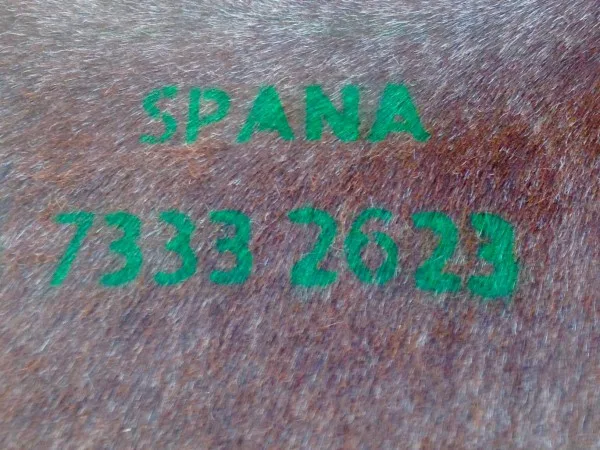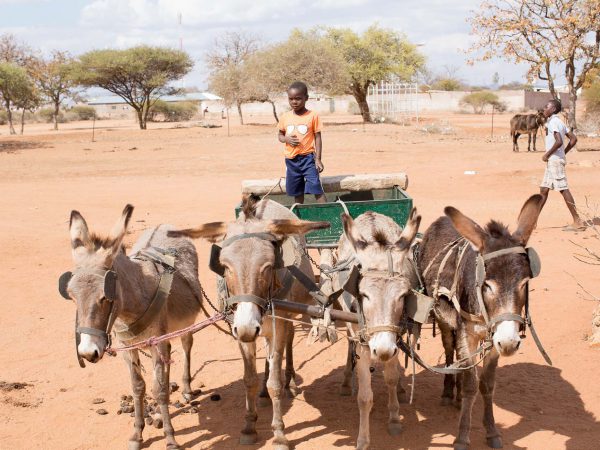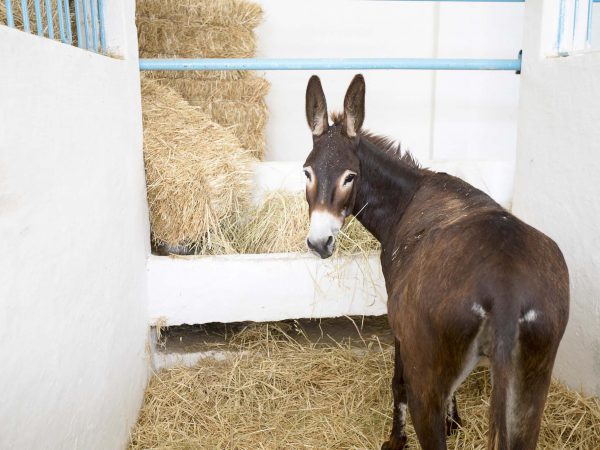Rescuing Botswana’s stray donkeys
Lost donkeys are a common problem in rural Botswana. Read about how the SPANA Botswana Country Director Pippa Young found a simple solution for improving their health and wellbeing.
All too often during mobile clinics, our SPANA Botswana team stumbles across lost donkeys wandering across the arid scrubland. These animals are loosely hobbled with rough ropes that let them roam around their owner’s farms. But sometimes, the curious donkeys travel a little too far and get lost. Without the protection of their owner or shelter, these donkeys risk dehydration from the blazing sun and attack from wild animals. With temperatures reaching as high as 40 Celsius, dehydration can quickly set in leaving lost donkeys confused and weak.

When Country Director Pippa Young comes across these stray animals, her first priority is to rehydrate them and treat their wounds. As Pippa often doesn’t know who these animals belong to, she can only give them treatment before releasing them. But Pippa worried that without the chance to speak to owners and provide follow-up treatments for serious cases, many of the donkeys would only end up suffering again.
Pippa considered the best way to let owners know that their donkey needed further care and came up with a simple yet ingenious solution. On field visits, she started carrying a small non-toxic bottle of spray paint with her and writing contact information on the neck or back of the donkey she had just treated. Although a success, Pippa decided to improve on her idea by creating a homemade stencil of her mobile number using nothing more than an overhead projector and scissors.

Now, whenever Pippa finds a stray injured animal, she treats their injuries, replaces old painful hobbles with SPANA’s more humane ones, and finishes by stencilling the SPANA digits on to the animal before releasing them. It’s been an enormous success with many owners calling in to thank SPANA for their help and ask about how to better take care of their animals.
Pippa and the team also get the chance to explain to owners the dangers of letting their animals roam and teach them how to make their donkey’s lives safer and more comfortable. More proof that sometimes the most effective solutions are the simplest.
Read more about Pippa’s work treating Botswana’s working animals.


